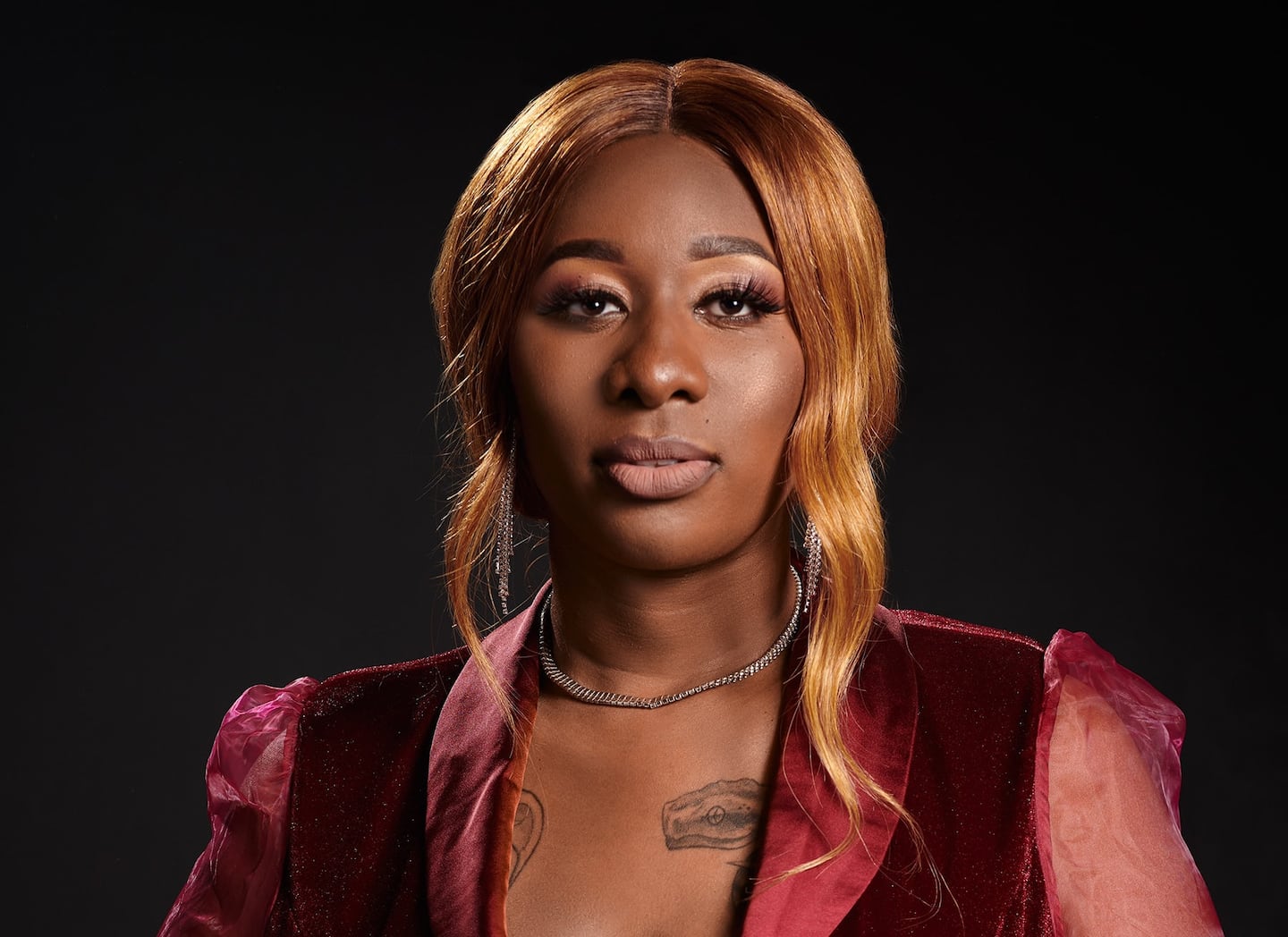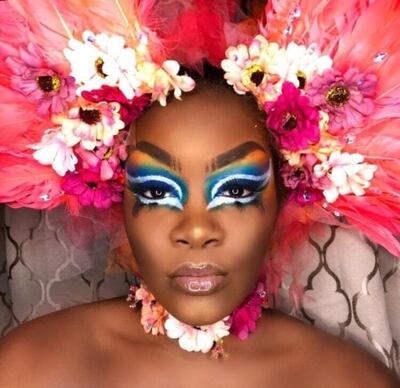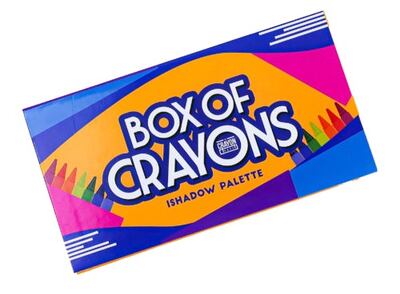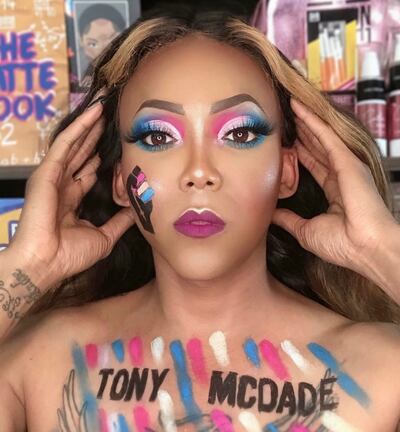
The Business of Fashion
Agenda-setting intelligence, analysis and advice for the global fashion community.

Agenda-setting intelligence, analysis and advice for the global fashion community.

Welcome to BoF's Beauty Newsletter, featuring members-only analysis and the week's top news from the front lines of the global beauty business. Subscribe here.
NEW YORK, United States — Charity Henry, a 19-year-old makeup artist based in St. John's, Antigua, spent the past month conceptualising "very extra" makeup looks with The Crayon Case's "The Matte Book" eyeshadow palette. She posts a new photo to Instagram every other day or so, in hopes of getting the attention of Raynell "Supa Cent" Steward, the colour cosmetics label's founder and chief executive.
Henry is an aspiring “Crayon Cutie,” the term Steward coined for her army of brand ambassadors, which now include about 150 makeup artists (MUAs) and makeup enthusiasts (MUEs). As part of the programme, recruits get tons of free products to create content so The Crayon Case can repost it and help Cuties grow their followings.
“I’m trying to be as creative as possible so that I can earn my badge,” said Henry, who goes by “Cmlartisty268” on Instagram. She detailed a recent look: a heavy cut crease (a technique where eyeshadow is applied in a sharp line across the eyelid without blending) with blue, purple, orange and yellow eyeshadow topped off with feathers and flowers above her neck and on her head. “It represents my growth in makeup. I have blossomed and bloomed.”
ADVERTISEMENT

Charity Henry is an aspiring "Crayon Cutie" | Source: Courtesy
The Crayon Case sells an assortment of makeup and brushes that are a nod to school supplies, including a $25 “Matte Book” of eyeshadow that looks like a math notebook and a palette that resembles a crayon box. “Chalk Dust” is a loose setting powder and brushes look like yellow No. 2 pencils. Billed as a direct-to-consumer “cosmetic line dedicated to amateur makeup users,” Steward wants consumers to “learn the things they would learn in school.”
“I only target underdogs. They don’t get enough recognition or seen enough,” said Steward, who is based in Slidell, Louisiana. “They get recognised from other brands who eventually add them to their PR [lists]… They give us content and we give them publicity.”
Steward, 32, rose to internet fame in 2015 when her “Storytime With Supa” video series went viral. A story about her “Best Sex Ever” got over 10 million views on Facebook and one million on YouTube. But once the speaking engagements, hosting and appearance requests started, Steward had to get her makeup done all the time. She found it difficult to always find a makeup artist, the impetus for starting her own brand.
In June of 2017, The Crayon Case launched with seven products, including highlighter and an eyebrow gel. The run was limited-edition: only 100 units of each. On launch day, she sold out of everything, more than $30,000 worth of product.
“I thought it was the most money I could make,” said Steward, who quickly realised she had to build a real company from the ground up.
So she teamed up with a supplier and designed and created her first custom packaging and formulas. The now-best selling Box of Crayons debuted in January 2018, with all 5,000 units of the $30 palette selling out on the first day. Two months later, a restock of 20,000 units sold out within a week. That summer, 50,000 more Box of Crayons palettes sold out over the course of a few months, and top influencers from Jeffree Star to Laura Lee posted reviews about the product.
"She is the ultimate marketer," Moj Mahdara, co-founder and chief executive of Beautycon Media, said of Steward, who has two million Instagram followers. "She is a content machine, a culture machine – she understands creative and culture."
ADVERTISEMENT
Before long, other brands were following in Steward’s stead. It seemed like school supply-themed makeup was everywhere.

The Crayon Case's Box of Crayons eyeshadow palette | Source: Courtesy
In June of 2018, Crayola came out with a makeup collection of 58-products that was exclusively sold at online retailer Asos. In April of 2019, Sephora and Moschino unveiled their first collaboration, a range of school supply-inspired makeup and accessories that included brushes that looked like yellow pencils.
“Although in line with the house codes,” read an April 2019 Instagram post from fashion industry watchdog account Diet Prada, “the collection bears a suspicious resemblance to The Crayon Case.” The post got over 1,000 comments and users were quick to come to Steward’s defence. Sephora didn’t respond to request for comment.
“That made the brand get bigger. Every time Moschino or Sephora posted anything… [people] kept talking about The Crayon Case — in the comments, all over social media. Anytime they were promoted, we were promoted,” Steward said before rushing off the phone. She was about to walk into the closing for a plot of land where she plans to build another house (it’s the seventh property she’s bought in two years). She also runs a management company that represents rap and bounce artists.
On Cyber Monday in 2018, The Crayon Case had its first million-dollar sales day, selling $1.3 million worth of product in 90 minutes. Last year, the brand did nearly $9 million in sales, said Steward, who owns the company in its entirety. She hasn’t taken a single investment, nor have her products ever been sold anywhere besides The Crayon Case’s e-commerce site.
“It’s not going to take Supa that long to get to $100 million in revenue. All she has to do is juice the acquisition and marketing and brand,” said Mahdara. “Every other brand has to do focus groups… She is so tied into her consumer, the views, the clicks, the return on investment, the average shopping cart — she knows every single thing about her consumer.”

The Crayon Case "Crayon Cutie" Taliyah Cassadine | Source: Courtesy
ADVERTISEMENT
In the US, there has been an increased focus on black-owned beauty brands like The Crayon Case as the Black Lives Matter movement intensifies amid mass protests all over the country. Many publications and influencers have taken to social media to raise awareness around the hundreds of makeup, skincare and haircare labels with black founders and owners, the vast majority of which have been ignored by mainstream retail and media outlets.
“If we all come together and attack the beauty world and ask them, ‘Why are we not in Sephora? Why are we not in Ulta [Beauty]?’ — that’s when our platform is going to help,” Steward said. “Why can’t we sit next to Anastasia [Beverly Hills]? Why can’t we sit next to all these other brands?”
Last week, Sephora said it would adopt the 15 Percent Pledge, a campaign started by Brother Vellies Founder and Creative Director Aurora James that calls on retailers to dedicate 15 percent of their shelf space to black-owned brands. Ulta hasn't confirmed whether it will do the same, but posted a list of black-owned brands it carries on Instagram, including Uoma Beauty, Juvia's Place, Beauty Bakerie, The Mane Choice, Mixed Chicks and Grace Eleyae.
Even if retailers do start to support black-owned brands in a big way, Steward isn’t sure if she’s willing to deviate from the direct-to-consumer business model.
“I’d rather The Crayon Case have its own store,” Steward said.
If she were to open a network of stores, similar to what MAC Cosmetics did in the 90s, it’s likely Steward’s loyal consumers would follow.
Taliyah Cassadine, an Atlanta, Georgia-based "Crayon Cutie," said she bought as much as her bank account would allow during The Crayon Case’s Pride Month sale last year.
Cassadine, 38, officially got her “Cutie” status in March, following months of daily makeup posts using various palettes. Most recently, she’s been participating in the brand’s Pride Month initiative, Pride School, which encourages followers to create various LGBTQ flag themed makeup looks and spotlight an artist or political figure from that group. Already, Cassadine, who is a black trans woman, used light blue and pink eyeshadow in support of the Trans Pride Flag. Another look, based on the Non-binary Pride Flag, contains a lot of yellow, white, purple and black.
“Her Cuties are very dear to her,” Cassadine said, referring to the time a user left a negative comment under one of her posts and Steward “tore that man alive.”
“There was no obligation to back me up,” Cassadine added. “She showed humanity”
THIS WEEK IN BEAUTY
Sephora bolsters "clean" beauty selection. Sephora will expand its Clean at Sephora category both in-store and online.
Tracee Ellis Ross launches next iteration of her line Pattern Beauty. For the haircare brand's "Phase 2" drop, which will include a range of products and styling tools, Ellis Ross posted a video on her Instagram about the urgent need to support Black-owned brands and celebrate Black beauty.
Kanye West is launching a cosmetics line. West has reportedly filed to extend the "Yeezy" trademark to beauty and skincare products, including make-up, haircare and perfumes.
Estée Lauder Companies appoints a new executive vice president. Jane Lauder, the granddaughter of the beauty giant's namesake founder and former Clinique Global Brand President, has been promoted to vice president of enterprise marketing and chief data officer of the group.
Black founders disproportionately impacted by the funding gap. Black-owned beauty business like Oui the People, founded by Karen Young in 2015, often have little access to VC funding.
The beauty industry is being held accountable for its lack of diversity. The Pull Up For Change campaign on social media is shedding light on brands' corporate culture. So far, over 200 brands have taken part in the campaign. Revlon revealed that only 5 percent of employees in director roles or above are black, while Sephora said only 6 percent of its leadership roles are held by black people. At Glossier, there are no black people in leadership positions.
Beauty influencer calls out Jeffree Star for tokenism. Kameron Lester posted an IGTV video claiming Star often made promises to help his career but didn't follow through."It was always just something like I was the kind of like the token black kid," Lester said.
Start-ups call for change in the black haircare market. The haircare sector has been inundated with venture capital funding, but few investments are in products and services for black hair. This is despite the fact that a report published by Nielsen in 2019 found that what it referred to as the "ethnic hair and beauty aids category" amounted to $63.5 million in the US, of which African Americans accounted for 86 percent of the spend in this category.
This month, BoF Careers provides essential sector insights to help beauty professionals decode the industry’s creative landscape.
The skincare-to-smoothie pipeline arrives.
Puig and Space NK are cashing in on their ability to tap the growth of hot new products, while L’Occitane, Olaplex and The Estée Lauder Companies are discovering how quickly the shine can come off even the biggest brands.
Demand for the drugs has proven insatiable. Shortages have left patients already on the medications searching for their next dose and stymied new starters.